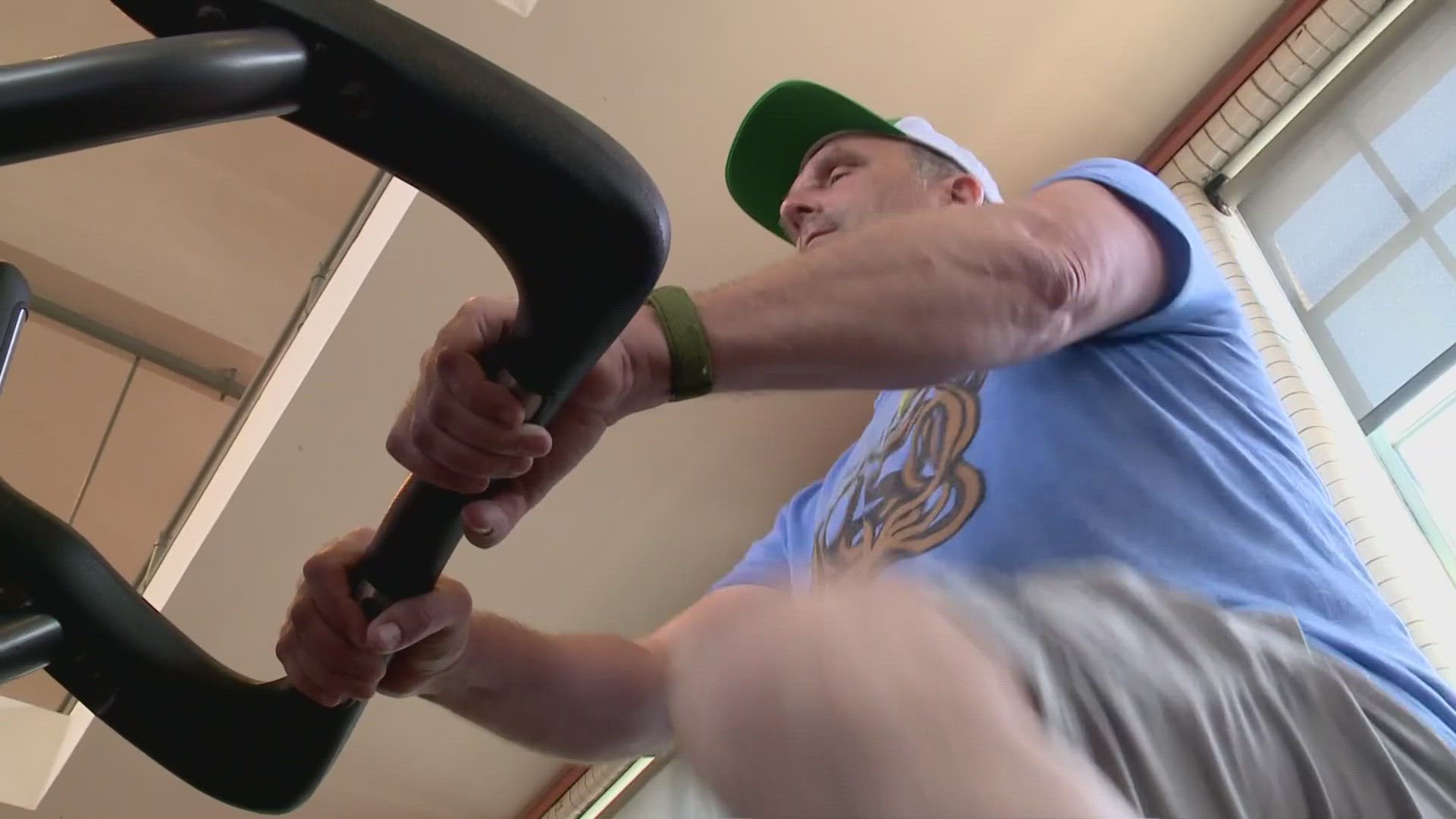JEFFERSON, La. — Those fitness trackers you see people wearing may seem like fun gadgets to track your moves, but one man is saying it told him something that totally surprised him and he wants to motivate others to get treatment.
A-fib is a heart condition that the Ochsner cardiologist says his practice sees a lot of, but in this story the doctor says, because the patient went shopping for something in particular, it may have saved his life.
George Ingmire, 54, decided he wanted to prioritize his health. So, in October, he bought a Fitbit to give him feedback.
“I was just interested in getting healthier, and sleep is, it's a third of your life. So, it's a very important thing,” Ingmire said.
Shortly after he strapped it on his wrist, he says the check engine light came on.
“I was obviously very concerned, It was something to deal with, and it gave me a lot of anxiety, which is also not good for the heart,” Ingmire said.
The warning said George had Atrial fibrillation. A-fib is an irregular, and often very rapid heart rhythm that can cause blood clots, strokes, and heart failure.
“It's not always right. It needs a cardiologist to look at it, but it's pretty accurate sometimes. It's pretty surprising how good it is,” said Dr. Dean Yount, an Ochsner cardiologist.
Dr. Yount said he is seeing this happen more often as wearable technology gives you a look inside.
George said sometimes he'd get short of breath bending over to tie his shoes, or lightheaded going upstairs, but he thought he just needed to get in better shape.
“Some people are very aware when they're in Atrial fibrillation, and they feel their heart racing. They feel miserable. They may have chest pain, or short of breath. Some people have no symptoms at all. He sort of falls in that in-between,” Dr. Yount said.
George went to the cath lab where electrophysiologist cardiologist Dr. Paul Rogers performed an ablation, creating scar tissue that keeps irregular rhythms from getting to the heart.
“It's a very successful procedure. There is a chance of recurrence. Sometimes people need to go back for a second procedure or need medications to help with the rhythm, but in him, this is a pretty good chance this is going to be a cure,” Dr. Yount said.
“I was obsessed with getting it, and when it finally happened, I remember coming out of anesthesia, and I could tell the difference immediately. It was like night and day. I didn't realize how bad I felt,” remembers Ingmire.
So what causes A-fib? It's more common as you age, if you have sleep apnea, high blood pressure, or a family history. So, don't ignore it if you have symptoms, since it's treatable.
► Get breaking news from your neighborhood delivered directly to you by downloading the new FREE WWL-TV News app now in the IOS App Store or Google Play.

